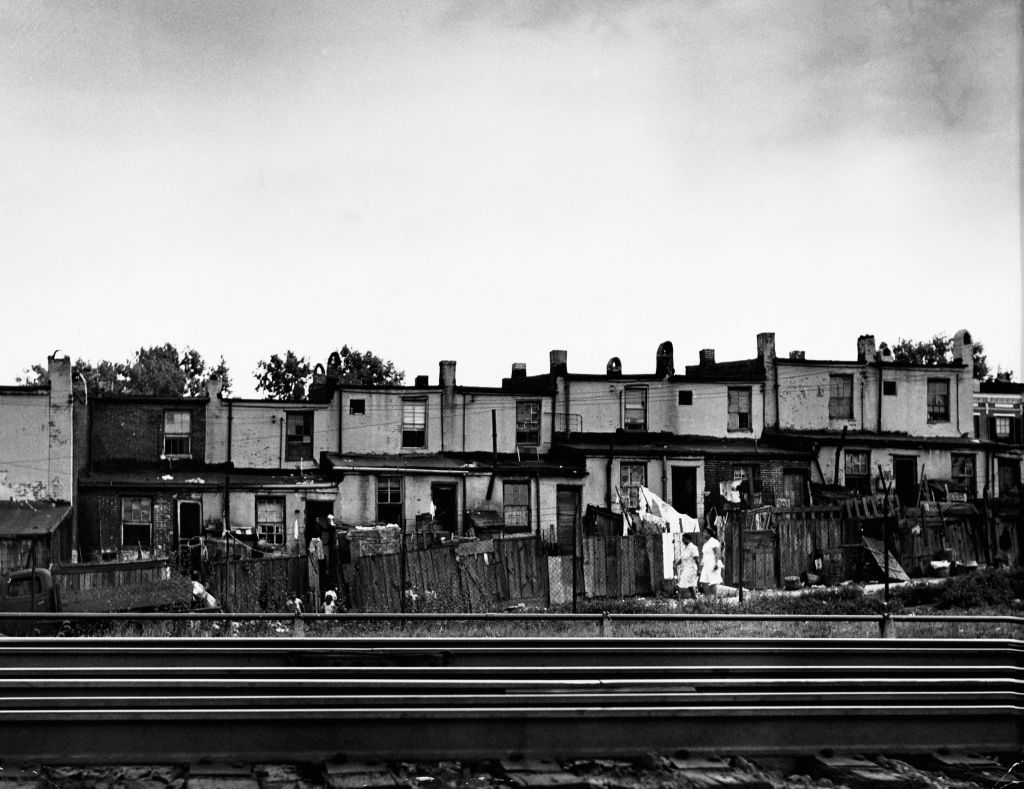
Source: Mara Vivat / Getty
If you missed out on the opportunity to buy a pad in New York City, Washington, D.C. or Detroit pre-gentrification, the buzz around the possible revival of the ‘Baltimore $1 House Program’ likely has you salivating.
These kinds of city-sponsored programs are an indicator that there is a strategic plan for an area and investing in one of the targeted neighborhoods before the prices skyrocket is nothing but net. There’s just one problem: folks think it’s literally buying a house for a $1. Yes, you technically get the home for the same price as a bag of chips, but you also have to get a loan to rehab the property, be prepared to manage the home build out process and handle the responsibility of owning a home in a neighborhood in transition (and you never know how long it will take). Is any of this rocket science? Absolutely not. But, if you haven’t purchased a home before, prepped yourself via courses on the subject or have guidance from parents or relatives who are responsible inner-city homeowners, you can easily be overwhelmed by the challenges that accompany the process.
I’ve actually purchased a home, or two, through government programs. I did the research before I jumped in the market and, perhaps most importantly, I’ve always been interested in real estate. Here are a few practical things I want you to consider if you’re thinking about jumping into any market on the verge of a resurgence.
1 Get Your Finances All the Way Right
Think of your credit score like your breath, it should never get too hot. That means you want to be in the habit of staying on top of your bills, limiting your debt to income ratio and saving your money. Stashing cash needs to become the gold standard. As a potential homeowner, you’ll need a cash reserve for everything from unexpected city/state fees (like increases in taxes) to contractor payments (many don’t take credit cards).
2 Know What You’re Signing Up For
These programs sell properties at a discounted rate for a reason— you’re being charged with turning the neighborhood around. Many programs require that new owners reside in the property for several years and/or prohibit the sale of the property for several years… without a consequence. If you forfeit these rules you may be subjected to a hefty fee (like forfeiting your original loan amount and paying market rate for the property). You may also be responsible for participating in certain programs or maintaining a specific income. Whatever the mandate is, make sure you know it and are willing to adhere.
https://giphy.com/gifs/tower-domino-S4iQrRL1FlPBS
3 Expect situations to happen
When you buy in a blighted community the house isn’t the only thing that has to be rebuilt— all of the support systems (city piping/electricity/streets) that we take for granted tend to be dilapidated. That means your newly refinished basement may flood or an entire tree/electrical pole may fall on your property due to no fault of your own, but guess what? You’ll have to manage, and perhaps pay for some of the repairs. Then there are situations that require softer skills, such as managing new vs. old neighbor relationships, and keeping the neighborhood clean and safe to ensure property values actually increase.
4 Know How Much House You Can Handle
When houses are $1, or even $30,000, and it seems like a neighborhood may pop, there’s a rush to buy either a large property or lots of smaller properties. Folks who spearhead the city programs will even co-sign on a community’s potential in a push to move the city’s agenda forward. Will a targeted neighborhood likely change? Yes. The question is when. And since there’s no way to predict exactly when the uptick will happen you have to be able to float whatever you sign for with today’s cash flow. That means don’t buy a big ole fixer upper with the intention of renting out rooms, or sign up for six houses to create a rent roll, unless you can handle the financial responsibility without additional income. Take risks. Just make sure they are calculated.
5 Remote control land lording is hard AF
Inevitably, people who don’t live in or near a city want to take advantage of great housing deals. Between Air B&B’ing and straight rentals, investing in a market seems simple if you have the cash, and is pretty alluring if you reside in a high market where the potential to buy property is low. But investing in unfamiliar or far places presents a lot of challenges. First, you have to understand the community you’re buying in (Is this really the popping corridor? Are folks looking to move here? What’s it like at night or weekends?) and it’s hard to know the real deal when you’re a visitor. Second, a lot of profit is devoured by property managers, handymen, etc… who are tasked with troubleshooting without your watchful eyes (Did that leaky sink take an hour or five minutes to fix? Was the walkway salted after the snow stopped?). Third, renters tend to be a lot more destructive when they have absentee landlords, which means the exterior and interior of your property will take a heck of a beating—and will require a major rehab for every new tenant. This doesn’t mean don’t invest outside of your town. Instead, troubleshoot practical solutions. Do you have someone you can partner with on the property who lives in close proximity? Do you have enough money to buy several properties to make using a property management team worthwhile financially? Think about what makes the most sense for your situation.
















